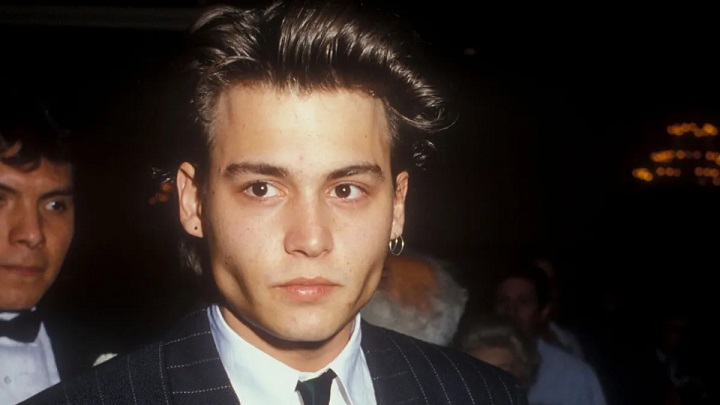Johnny Depp, a name synonymous with versatility and charm, has carved an indelible niche in the entertainment industry. His career, spanning over three decades, has seen him evolve from a teenage heartthrob to a global icon. However, it is the early years of Depp’s career—the years when he was young, enigmatic, and brimming with potential—that set the stage for his rise to superstardom. This article delves into the fascinating journey of young Johnny Depp, exploring the milestones, challenges, and triumphs that defined his formative years in Hollywood Young Johnny Depp.
The Early Years: A Dream Takes Shape
Born John Christopher Depp II on June 9, 1963, in Owensboro, Kentucky, Johnny Depp’s childhood was marked by frequent moves due to his father’s job as a civil engineer. This nomadic lifestyle exposed Depp to various cultures and experiences, shaping his eclectic personality. However, it was his passion for music that initially set him on the path to fame. As a teenager, Depp was the lead guitarist in a band called The Kids, and his musical ambitions led him to drop out of high school to pursue a career in music.
Despite his deep love for music, fate had other plans. Depp’s journey into acting began almost serendipitously when he accompanied a friend to an audition. His unique look and undeniable charisma caught the eye of Nicolas Cage Young Johnny Depp, who encouraged him to try his hand at acting. This advice proved to be a turning point in Depp’s life, leading him to his first major role in the 1984 horror film A Nightmare on Elm Street.
Breakthrough Role: From Horror to Heartthrob
Depp’s portrayal of Glen Lantz in A Nightmare on Elm Street may have been a modest beginning, but it showcased his potential as an actor. However, it was his role as Officer Tom Hanson in the television series 21 Jump Street that truly catapulted him into the limelight. The show, which aired from 1987 to 1991, featured Depp as an undercover cop working in high schools to tackle juvenile crime. His boyish good looks and rebellious charm quickly made him a teen idol, much to his chagrin Young Johnny Depp.
While 21 Jump Street brought Depp immense fame, it also pigeonholed him as a heartthrob, a label he was eager to shed. Depp was determined to prove his versatility as an actor, and he made bold choices to steer his career away from the conventional roles that Hollywood seemed eager to offer him.
Breaking the Mold: Embracing the Unconventional

Young Johnny Depp’s career is a testament to his refusal to conform to industry norms. After leaving 21 Jump Street, Depp took on a series of roles that were as varied as they were challenging. His collaboration with director Tim Burton began with the 1990 film Edward Scissorhands, where Depp played the titular character—a gentle, misunderstood creation with scissors for hands. The role was a far cry from the handsome, clean-cut image he had in 21 Jump Street, and it allowed Depp to showcase his range as an actor Young Johnny Depp.
Edward Scissorhands was not just a critical and commercial success; it was also the beginning of one of the most successful actor-director partnerships in Hollywood. Depp and Burton’s creative synergy resulted in several more iconic films, including Ed Wood (1994), Sleepy Hollow (1999), and Sweeney Todd: The Demon Barber of Fleet Street (2007).
Iconic Roles: A Star is Born
The 1990s and early 2000s were a period of artistic exploration for Johnny Depp. He gravitated towards roles that were unconventional, quirky, and often dark. In What’s Eating Gilbert Grape (1993), Depp played the titular character, a young man burdened with the responsibility of caring for his mentally challenged brother and morbidly obese mother. The film, which also starred a young Leonardo DiCaprio, was a critical success and showcased Depp’s ability to portray complex, emotionally charged characters of Young Johnny Depp.
Depp’s portrayal of the eccentric author Hunter S. Thompson in Fear and Loathing in Las Vegas (1998) further solidified his reputation as an actor unafraid to take risks. The film, based on Thompson’s novel, was a psychedelic journey through the counterculture of the 1960s, and Depp’s performance was both chaotic and compelling.
However, it was his role as Captain Jack Sparrow in Pirates of the Caribbean: The Curse of the Black Pearl (2003) that turned Depp into a global superstar. The character, a swaggering, rum-loving pirate with a penchant for mischief, was unlike anything Depp had done before. His portrayal was so iconic that it earned him an Academy Award nomination and led to the creation of one of the most successful film franchises of all time.
Challenges and Triumphs: The Personal Struggles
Despite his professional success, young Johnny Depp’s life was not without its challenges. His early years in Hollywood were marked by personal struggles, including battles with substance abuse and tumultuous relationships. These experiences, while difficult, contributed to the depth and authenticity of his performances. Depp’s ability to channel his pain into his craft is one of the reasons he remains one of the most respected actors of his generation.
Depp’s relationship with actress Winona Ryder was one of the most publicized of the 1990s. The couple, who met on the set of Edward Scissorhands, became the darlings of Hollywood, but their relationship ultimately ended in heartbreak. Depp, who famously had “Winona Forever” tattooed on his arm, later altered the tattoo to read “Wino Forever.”

Legacy: The Making of a Legend
The young Johnny Depp who captivated audiences with his brooding good looks and unconventional roles has since evolved into a legend of the silver screen. His early career laid the foundation for a body of work that is as diverse as it is impressive. From indie films to blockbuster franchises, Depp’s ability to inhabit a wide range of characters has cemented his place in Hollywood history.
Depp’s influence extends beyond his acting. He has inspired a generation of actors to embrace their individuality and take risks in their careers. His refusal to be typecast and his commitment to artistic integrity have earned him a loyal fan base and the respect of his peers.
Conclusion: The Enduring Appeal of Young Johnny Depp
The journey of young Johnny Depp is one of perseverance, talent, and a relentless pursuit of artistic excellence. His early years in Hollywood were marked by bold choices that set him apart from his contemporaries. Today, Depp’s legacy is one of innovation and creativity, a testament to his enduring appeal as one of the most talented actors of his generation.
Read More Also: Johnny Depp and Pirates of the Caribbean 6






